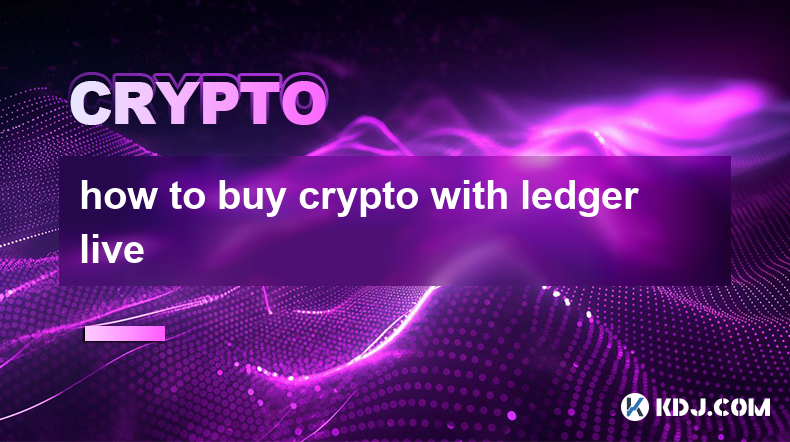-
 Bitcoin
Bitcoin $106,754.6083
1.33% -
 Ethereum
Ethereum $2,625.8249
3.80% -
 Tether USDt
Tether USDt $1.0001
-0.03% -
 XRP
XRP $2.1891
1.67% -
 BNB
BNB $654.5220
0.66% -
 Solana
Solana $156.9428
7.28% -
 USDC
USDC $0.9998
0.00% -
 Dogecoin
Dogecoin $0.1780
1.14% -
 TRON
TRON $0.2706
-0.16% -
 Cardano
Cardano $0.6470
2.77% -
 Hyperliquid
Hyperliquid $44.6467
10.24% -
 Sui
Sui $3.1128
3.86% -
 Bitcoin Cash
Bitcoin Cash $455.7646
3.00% -
 Chainlink
Chainlink $13.6858
4.08% -
 UNUS SED LEO
UNUS SED LEO $9.2682
0.21% -
 Avalanche
Avalanche $19.7433
3.79% -
 Stellar
Stellar $0.2616
1.64% -
 Toncoin
Toncoin $3.0222
2.19% -
 Shiba Inu
Shiba Inu $0.0...01220
1.49% -
 Hedera
Hedera $0.1580
2.75% -
 Litecoin
Litecoin $87.4964
2.29% -
 Polkadot
Polkadot $3.8958
3.05% -
 Ethena USDe
Ethena USDe $1.0000
-0.04% -
 Monero
Monero $317.2263
0.26% -
 Bitget Token
Bitget Token $4.5985
1.68% -
 Dai
Dai $0.9999
0.00% -
 Pepe
Pepe $0.0...01140
2.44% -
 Uniswap
Uniswap $7.6065
5.29% -
 Pi
Pi $0.6042
-2.00% -
 Aave
Aave $289.6343
6.02%
how to buy crypto with ledger live
Through Ledger Live's secure crypto purchasing feature, users can conveniently acquire various cryptocurrencies while maintaining the enhanced protection of their hardware wallet.
Jan 30, 2025 at 12:13 am

Key Points:
- Understanding Ledger Live and Its Crypto Purchasing Functionality
- Setting Up Ledger Live for Secure Transactions
- Selecting a Trusted Crypto Exchange or Wallet
- Establishing a Funding Source for Cryptocurrency Purchases
- Initiating a Crypto Purchase through Ledger Live
- Monitoring Transactions and Managing Crypto Assets
Step 1: Understanding Ledger Live and Its Crypto Purchasing Functionality
Ledger Live is a secure hardware wallet that enables users to store, manage, and buy cryptocurrencies conveniently. The built-in purchase feature of Ledger Live provides an effortless and secure way to acquire various cryptocurrencies directly within the wallet. By utilizing Ledger Live, users can avoid the complexities of traditional crypto exchanges and benefit from the enhanced security of their hardware wallet.
Step 2: Setting Up Ledger Live for Secure Transactions
To ensure the security of crypto transactions, it is crucial to properly set up the Ledger Live application. This involves the following steps:
- Downloading the Ledger Live software from the official website
- Connecting the Ledger hardware wallet to the computer
- Creating a PIN and recovery phrase for the wallet
- Installing the necessary cryptocurrency apps within Ledger Live
Step 3: Selecting a Trusted Crypto Exchange or Wallet
Ledger Live acts as a gateway to trusted crypto exchanges and wallets, allowing users to purchase cryptocurrencies from reputable platforms. Each partner has undergone rigorous security evaluations to ensure user funds are protected. By selecting a preferred exchange or wallet from the list of available options, users can seamlessly integrate crypto purchases with their chosen platform.
Step 4: Establishing a Funding Source for Cryptocurrency Purchases
To facilitate crypto purchases, users need to establish a funding source. Ledger Live supports various payment methods, including:
- Bank transfer: By connecting a bank account to Ledger Live, users can transfer funds directly from their bank to purchase cryptocurrencies.
- Credit or debit card: Ledger Live accepts Visa and Mastercard payments, allowing users to conveniently use their cards to fund their crypto purchases.
- Third-party wallets: Users can utilize other trusted cryptocurrency wallets or apps to transfer funds into Ledger Live for crypto purchases.
Step 5: Initiating a Crypto Purchase through Ledger Live
Once the necessary preparations are complete, users can proceed with crypto purchases within Ledger Live:
- Select the desired cryptocurrency and the preferred amount to be purchased
- Choose the preferred payment method and enter the relevant details
- Review the transaction details carefully before confirming the purchase
Step 6: Monitoring Transactions and Managing Crypto Assets
All crypto purchases made through Ledger Live are reflected in the wallet's transaction history. Users can monitor their transactions in real-time, ensuring that all purchases have been processed successfully. Ledger Live also provides advanced portfolio management tools, enabling users to track their crypto assets, set up custom alerts, and securely store their private keys.
FAQs:
- What cryptocurrencies can I purchase through Ledger Live?
Ledger Live supports a wide range of popular cryptocurrencies, including Bitcoin, Ethereum, Litecoin, Ripple, and many others.
- How secure is it to purchase cryptocurrency with Ledger Live?
Ledger Live utilizes state-of-the-art security measures, including offline transaction signing and two-factor authentication, to safeguard user funds and prevent unauthorized access.
- What fees are associated with crypto purchases through Ledger Live?
Fees vary depending on the selected crypto exchange or wallet. Ledger Live itself does not charge any fees for its purchase service.
- Can I purchase cryptocurrencies with fiat currency through Ledger Live?
Yes, Ledger Live enables direct purchases of cryptocurrencies using fiat currency via bank transfers, credit/debit cards, or third-party wallets.
- How do I contact support if I encounter any issues with my crypto purchases?
Users can access Ledger's support team through the official website or via email at contact@ledger.com for assistance with any queries or troubleshooting related to crypto purchases.
Disclaimer:info@kdj.com
The information provided is not trading advice. kdj.com does not assume any responsibility for any investments made based on the information provided in this article. Cryptocurrencies are highly volatile and it is highly recommended that you invest with caution after thorough research!
If you believe that the content used on this website infringes your copyright, please contact us immediately (info@kdj.com) and we will delete it promptly.
- Seed Phrase, Self Custody, and Liability: Are You Really Your Own Bank?
- 2025-06-21 04:25:11
- Bitcoin Demand Dries Up: Capital Exits and Market Indecision
- 2025-06-21 04:25:11
- Ripple, RLUSD, and Alchemy Pay: A New Era of Crypto Accessibility
- 2025-06-21 04:45:12
- Bitcoin, Quantum Computers, and Cryptography: Navigating the Post-Quantum Landscape in NYC
- 2025-06-21 04:45:12
- Coinbase's Luxembourg Leap: MiCA License Secured, Europe Domination in Sight!
- 2025-06-21 05:05:12
- Staked Ether, Corporate Crypto, and Finance Adoption: A New York Minute
- 2025-06-21 02:45:13
Related knowledge

What is Ethereum’s Slashing mechanism and how to punish malicious behavior?
Feb 20,2025 at 03:08am
Key PointsOverview of slashingDifferent types of slashing in EthereumIncentives and consequences of slashingIdentifying and reporting slashed validatorsOngoing discussions and potential improvementsEthereum's Slashing Mechanism: Punishing Malicious BehaviorEthereum's slashing mechanism is an essential tool for ensuring network security and punishing mal...

What is the verifier node of Ethereum and how to become a verifier?
Feb 19,2025 at 06:00pm
The Verifier Node of Ethereum: A Comprehensive GuideKey Points:What is a Verifier Node?How to Become a Verifier NodeResponsibilities and Rewards of a Verifier NodeMinimum Requirements for Becoming a Verifier NodePotential Difficulties in Running a Verifier Node1. What is a Verifier Node?A Verifier Node is an independent entity on the Ethereum network th...

What is Ethereum’s staking, and how to participate and earn money?
Feb 19,2025 at 04:37pm
Key Points:Understanding Ethereum's Staking MechanismSteps to Participate in StakingBenefits and Rewards of StakingSecurity and Risk ConsiderationsTechnical Requirements and Hardware OptionsPotential Challenges and Troubleshooting TipsFAQs on Ethereum StakingWhat is Ethereum's Staking?Proof-of-Stake (PoS) is a consensus mechanism used in blockchain netw...

What is Ethereum’s DAO (Decentralized Autonomous Organization) and how does it work?
Feb 20,2025 at 03:12am
Key PointsDefinition and Structure of a DAOGovernance and Decision-Making in DAOsBenefits and Use Cases of DAOsChallenges and Limitations of DAOsWhat is Ethereum's DAO (Decentralized Autonomous Organization) and How Does It Work?Definition and Structure of a DAOA Decentralized Autonomous Organization (DAO) is an innovative governance and management fram...

What is Ethereum's multi-signature wallet and how to improve security?
Feb 20,2025 at 02:18pm
Key Points:Understanding the Concept of a Multi-Signature WalletBenefits and Drawbacks of Multisig WalletsRequirements for Setting Up a Multisig WalletStep-by-Step Guide to Generating a Multisig WalletImplementing Strategies for Enhanced Security1. Understanding the Concept of a Multi-Signature WalletA multi-signature (multisig) wallet in the Ethereum e...

What is Ethereum's oracle and how to provide data for smart contracts?
Feb 21,2025 at 01:30am
Key Points:Understanding the concept of oracles in EthereumExploring different types of oraclesDetailed guide on how to provide data for smart contractsAddressing potential challenges and considerationsWhat is Ethereum's Oracle?Oracles are crucial components in the Ethereum ecosystem, enabling smart contracts to access real-world data and off-chain even...

What is Ethereum’s Slashing mechanism and how to punish malicious behavior?
Feb 20,2025 at 03:08am
Key PointsOverview of slashingDifferent types of slashing in EthereumIncentives and consequences of slashingIdentifying and reporting slashed validatorsOngoing discussions and potential improvementsEthereum's Slashing Mechanism: Punishing Malicious BehaviorEthereum's slashing mechanism is an essential tool for ensuring network security and punishing mal...

What is the verifier node of Ethereum and how to become a verifier?
Feb 19,2025 at 06:00pm
The Verifier Node of Ethereum: A Comprehensive GuideKey Points:What is a Verifier Node?How to Become a Verifier NodeResponsibilities and Rewards of a Verifier NodeMinimum Requirements for Becoming a Verifier NodePotential Difficulties in Running a Verifier Node1. What is a Verifier Node?A Verifier Node is an independent entity on the Ethereum network th...

What is Ethereum’s staking, and how to participate and earn money?
Feb 19,2025 at 04:37pm
Key Points:Understanding Ethereum's Staking MechanismSteps to Participate in StakingBenefits and Rewards of StakingSecurity and Risk ConsiderationsTechnical Requirements and Hardware OptionsPotential Challenges and Troubleshooting TipsFAQs on Ethereum StakingWhat is Ethereum's Staking?Proof-of-Stake (PoS) is a consensus mechanism used in blockchain netw...

What is Ethereum’s DAO (Decentralized Autonomous Organization) and how does it work?
Feb 20,2025 at 03:12am
Key PointsDefinition and Structure of a DAOGovernance and Decision-Making in DAOsBenefits and Use Cases of DAOsChallenges and Limitations of DAOsWhat is Ethereum's DAO (Decentralized Autonomous Organization) and How Does It Work?Definition and Structure of a DAOA Decentralized Autonomous Organization (DAO) is an innovative governance and management fram...

What is Ethereum's multi-signature wallet and how to improve security?
Feb 20,2025 at 02:18pm
Key Points:Understanding the Concept of a Multi-Signature WalletBenefits and Drawbacks of Multisig WalletsRequirements for Setting Up a Multisig WalletStep-by-Step Guide to Generating a Multisig WalletImplementing Strategies for Enhanced Security1. Understanding the Concept of a Multi-Signature WalletA multi-signature (multisig) wallet in the Ethereum e...

What is Ethereum's oracle and how to provide data for smart contracts?
Feb 21,2025 at 01:30am
Key Points:Understanding the concept of oracles in EthereumExploring different types of oraclesDetailed guide on how to provide data for smart contractsAddressing potential challenges and considerationsWhat is Ethereum's Oracle?Oracles are crucial components in the Ethereum ecosystem, enabling smart contracts to access real-world data and off-chain even...
See all articles

























































































